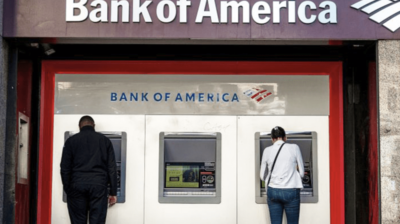in News
Thank you for reading this post, don't forget to follow and signup for notifications!
Published On: September 24, 2025 Updated: September 25, 2025 BYNews Wire
Six of the nation’s leading Second Amendment organizations have joined forces to demand an end to what they call “un-American” discrimination from the country’s biggest banks.
In a letter sent September 23 to JPMorgan Chase CEO Jamie Dimon, Bank of America CEO Brian Moynihan, and Bank Policy Institute Chairman Rene Jones, the groups accused Wall Street of years of targeted debanking against firearms makers, retailers, and pro-2A nonprofits.
The signers—representing GOA, NRA-ILA, CCRKBA, SAF, NAGR, and the American Suppressor Association—say the bias has been blatant. They point to 2019 congressional testimony where Bank of America admitted cutting off lending to companies that make so-called “military-style rifles for civilian use.”
JPMorgan executives later followed with their own version of the policy, citing “values” and “corporate responsibility.”
The letter blasts those moves as corporate virtue signaling. “Each of us and our businesses have felt the effects of un-American debanking practices,” the coalition wrote. “Being able to plan for the future with certainty is the determining factor of success or failure.”
The groups also called out recent attempts by the banks to blame past administrations for the discrimination, arguing that the policies were publicly adopted at a time when neither Obama nor Biden were in office.
They welcomed former President Donald Trump’s recent executive order banning politically motivated debanking, calling it “the most pro-Second Amendment executive order in our nation’s history.”
The letter asks the banks for a formal, public commitment that they will no longer cut off services to lawful firearms businesses.
“An equal application of rules and standards across industries is critical for fairness and ensuring the rights of law-abiding gun owners are not infringed,” the coalition wrote.
With the nation’s largest gun rights organizations standing shoulder to shoulder, the financial industry is now under pressure to prove whether “fair banking for all” is just a slogan—or a real policy change.













